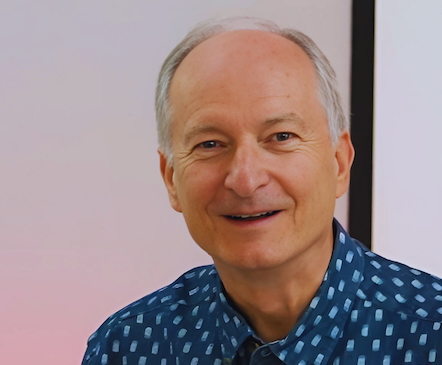A young man went into a drugstore and bought three boxes of chocolates. When the pharmacist asked him about the three boxes, he said, “Well, I’m going over to a new girlfriend’s house for supper. Then we’re going out. If she only lets me hold her hand, then I’ll give her the small box. If she lets me kiss her on the cheek, then I’ll give her the medium box. But if she lets me do some serious smooching, then I’ll give her the big box.” The pharmacist just rolled his eyes.
That evening as he sat down at dinner with his girlfriend’s family for the first time, he asked if he could say the prayer before the meal. He began to pray, and he prayed an earnest, intense prayer that lasted for almost five minutes. When he finished, his girlfriend said, “You never told me you were such a religious person.”
He said, “You never told me your dad was a pharmacist.”
He gave new meaning to the biblical statement that men always ought to pray and not faint (Luke 18:1). Prayer is our foremost responsibility, not our last resort.
“The prayer of a righteous man has great power in its working” (James 5:16b, ESV). What do we hope to accomplish when we pray?
First, we pray to know God better. Prayer is simply having a conversation with our heavenly Father who desires to have a personal relationship with us.
How do you get to know someone? You spend time with that person consistently and invest in that relationship. The main way we develop this relationship is through spending time with God in prayer.
Second, we pray to advance God’s kingdom. Jesus taught us to pray Your kingdom come, your will be done on earth as it is in heaven (Matthew 6:10).
Simply put, our prayer needs to line up with God’s agenda. Sometimes, we get it backwards, don’t we? We pray with our agenda in mind instead of God’s bigger picture in mind. Whatever is the will of God and whatever advances His purposes should be our focus. Ask how is what I’m requesting fitting into God’s bigger picture of advancing His kingdom?
Third, we pray to secure God’s answer (James 4:2b-3). If we’re truly interested in God’s will being done, then we want what God wants. According to James, we often don’t receive because we ask amiss.
What IF God had given us some of the things we’ve asked for through the years? Think about that job you thought you wanted, but God closed the door and gave you a better situation. Think about that person you could have married instead of the person God thought was best for you!
How does God answer? Sometimes God doesn’t answer because of sin in our lives (Psalm 66:18).
Sometimes God says NO because HE knows what is best. When God says “No,” He is saying, “I love you so much that I have a better answer or solution.”
Sometimes God says WAIT. We’re not wired to wait. We want instant results, but sometimes His best answer is not yet.
Often God says YES. What we ask for lines up with His will, and He gives us what we ask.
Fourth, we pray to battle our enemy (Ephesians 6:11-13, 18). God has provided certain weapons to utilize in spiritual warfare, and one of these weapons is prayer.
That’s why Paul said in Ephesians 5:27, Give no opportunity to the devil. That means always being alert, never giving Satan an opening into your life, and never letting your guard down. Satan is waiting to slip right in and do serious damage to our spiritual lives, our witness, and our walk with God, so prayer must be part of our battle plan.
Fifth, we pray to request God’s provision. God has promised to provide our needs, but He invites us to ask. In the model prayer, Jesus taught us to pray, Give us this day our daily bread (Matthew 6:11).
Why? God knows the needs we possess in one part of our lives will have an impact on another. God supplies our human needs to enable us to focus on serving Him.
[Dr. David L. Chancey is pastor, McDonough Road Baptist Church, Fayetteville, Georgia. The church family meets at 352 McDonough Road. Join them this Sunday for worship at 10 a.m. and Bible study at 11:10 a.m. Visit them at www.mcdonoughroad.org to view online options and like them on Facebook. Contact Chancey at [email protected]. See his other writings at www.davidchancey.com.]











Leave a Comment
You must be logged in to post a comment.